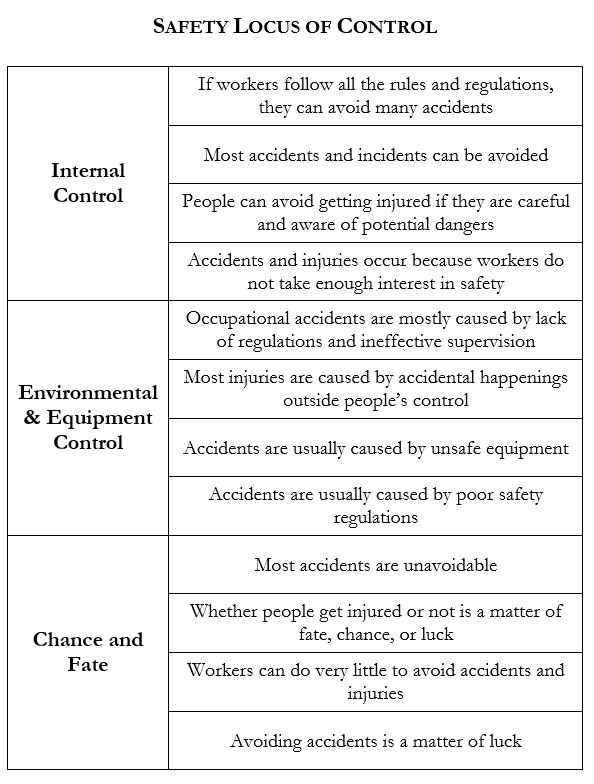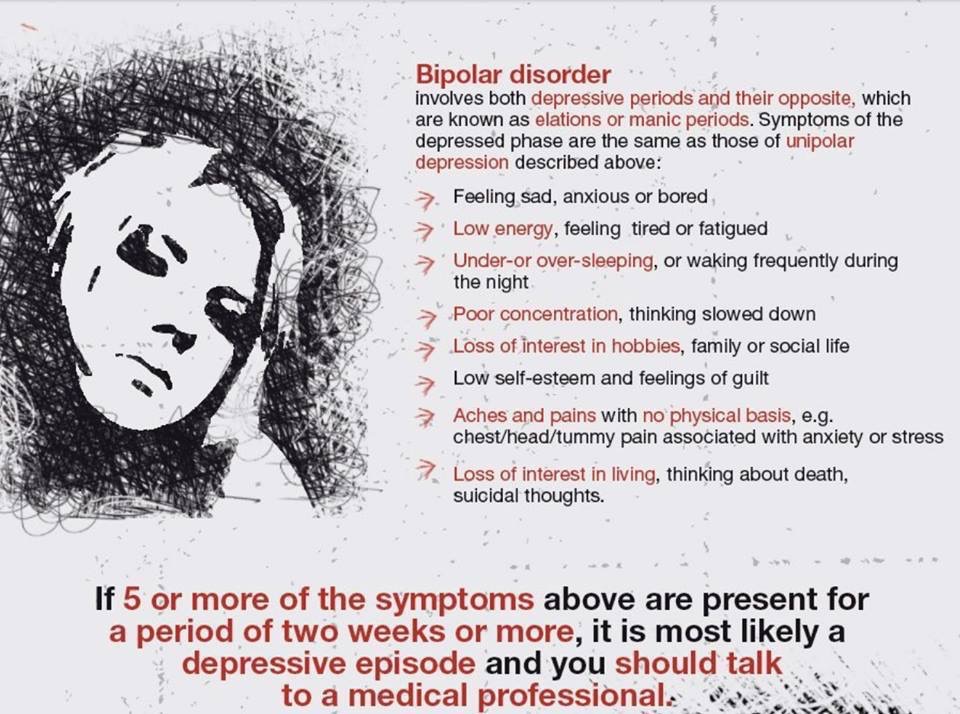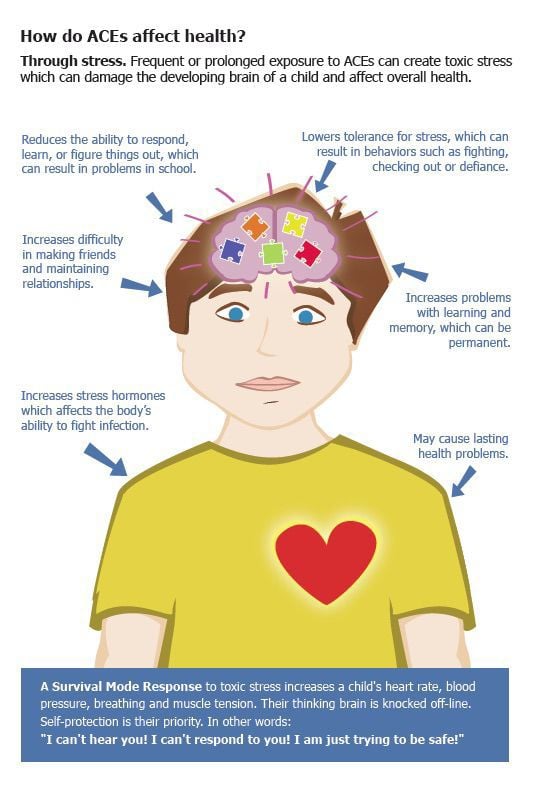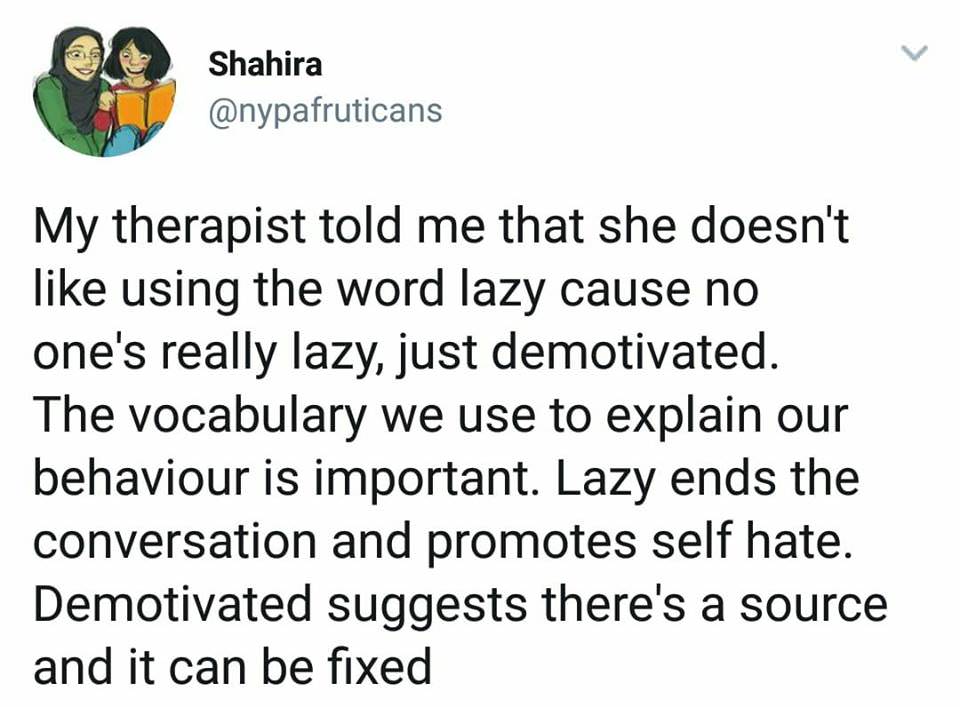Define locus of control
Locus of Control Definition
Locus of control is a psychological concept that refers to how strongly people believe they have control over the situations and experiences that affect their lives. In education, locus of control typically refers to how students perceive the causes of their academic success or failure in school.
Students with an “internal locus of control” generally believe that their success or failure is a result of the effort and hard work they invest in their education. Students with an “external locus of control” generally believe that their successes or failures result from external factors beyond their control, such as luck, fate, circumstance, injustice, bias, or teachers who are unfair, prejudiced, or unskilled. For example, students with an internal locus of control might blame poor grades on their failure to study, whereas students with an external locus of control may blame an unfair teacher or test for their poor performance.
Whether a student has an internal or external locus of control is thought to have a powerful effect on academic motivation, persistence, and achievement in school. In education, “internals” are considered more likely to work hard in order to learn, progress, and succeed, while “externals” are more likely to believe that working hard is “pointless” because someone or something else is treating them unfairly or holding them back. Students with an external locus of control may also believe that their accomplishments will not be acknowledged or their effort will not result in success.
In special education, the locus-of-control concept is especially salient. Many educators believe that students with learning disabilities are more likely to develop an external locus of control, at least in part due to negative experiences they may have had in school. If their disabilities have made learning exceptionally difficult or challenging, and they have consequently experienced more failure than success in school, blaming other people and external factors can develop into a psychological coping mechanism (i. e., when someone or something else is always the cause, the students don’t need to take more responsibility over their success in school).
e., when someone or something else is always the cause, the students don’t need to take more responsibility over their success in school).
For related discussions, see growth mindset and stereotype threat.
Locus of control is related to a variety of psychological concepts, theories, and findings, including learned helplessness, which is when a person has learned to act as if they are helpless even when they actually have control over their situation or the power to change a circumstance or outcome. Some psychologists believe “externals” are more likely to develop learned helplessness than “internals.”
Reform
In recent decades, locus of control has become a more widely recognized and discussed concept in education. There are two main approaches that schools use when working with learning-disabled students who have an external locus of control:
- Altering learning contexts: More structured, orderly, and supportive classrooms and learning environments are believed to benefit students with an external locus of control, while students with an internal locus of control often thrive in more unstructured learning environments.
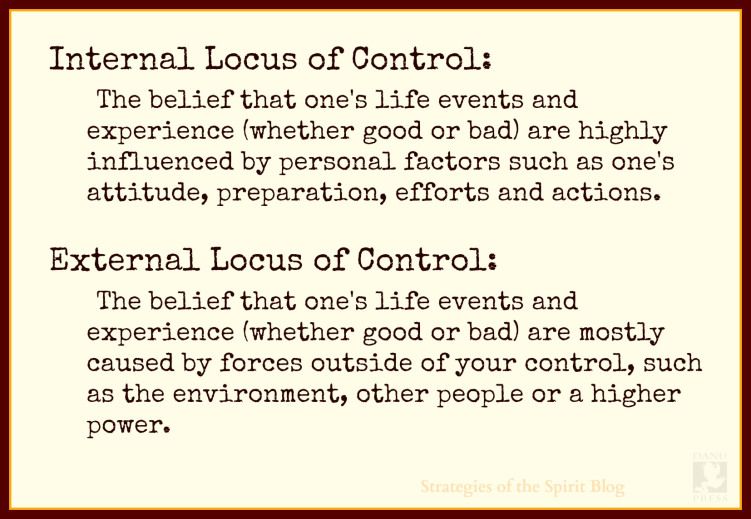
- Strengthening internal locus of control: Educators and specialists may also use a variety of strategies to encourage students to believe they have more control over their education and academic achievement, including techniques known as “attribution training.” Essentially, students are taught to internalize positive messages that tend to be intuitive to students with an internal locus of control. For example, the training may encourage students to say to themselves—out loud at first, then in a whispering voice, and then silently to themselves—that they can do the task they were assigned and that their hard work and effort will be rewarded with success.
Several questionnaires have been developed to help identify whether students tend toward an internal or external locus of control. Julian B. Rotter, the psychologist who originally developed the locus-of-control concept, created a widely used question-based assessment and a corresponding scale designed to identify where students are on the internal-external spectrum.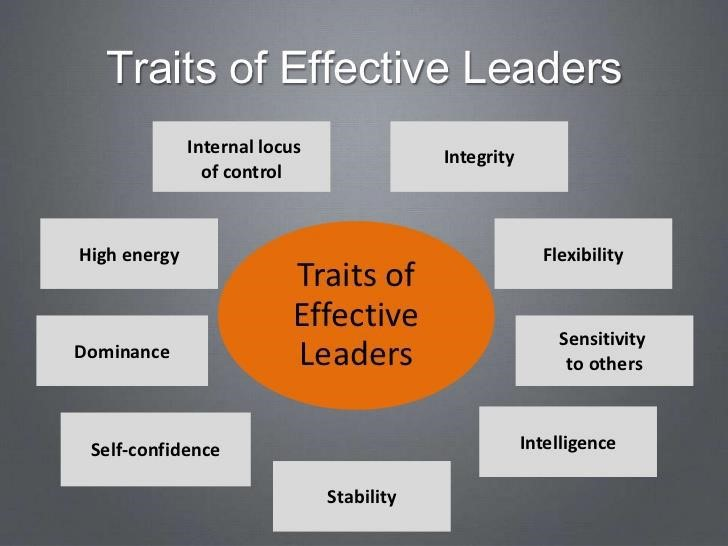 The questionnaire offers a series of choices between two statements. For example, the respondent would choose between “I have often found that what is going to happen will happen” or “Trusting to fate has never turned out as well for me as making a decision to take a definite course of action.” Rotter’s assessment is one of a number of diagnostic tools and scales that may be used by psychologists and educators.
The questionnaire offers a series of choices between two statements. For example, the respondent would choose between “I have often found that what is going to happen will happen” or “Trusting to fate has never turned out as well for me as making a decision to take a definite course of action.” Rotter’s assessment is one of a number of diagnostic tools and scales that may be used by psychologists and educators.
The Glossary of Education Reform by Great Schools Partnership is licensed under a Creative Commons Attribution-NonCommercial-ShareAlike 4.0 International License.
Locus of Control | Psychology Today
Reviewed by Psychology Today Staff
When something goes wrong, it’s natural to cast blame on the perceived cause of the misfortune. Where an individual casts that blame can be related, in many cases, to a psychological construct known as “locus of control. ”
”
Contents
- What Is Locus of Control?
- Self-Efficacy and Locus of Control
What Is Locus of Control?
Locus of control refers to the degree to which an individual feels a sense of agency in regard to his or her life. Someone with an internal locus of control will believe that the things that happen to them are greatly influenced by their own abilities, actions, or mistakes. A person with an external locus of control will tend to feel that other forces—such as random chance, environmental factors, or the actions of others—are more responsible for the events that occur in the individual's life.
Like other constructs in personality psychology, locus of control falls on a spectrum. Genetic factors may influence one’s locus of control, as well as an individual’s childhood experiences—particularly the behaviors and attitudes modeled by their early caregivers.
Researchers have identified several areas in which one’s sense of control appears to affect outcomes, including education, health, and civic engagement. Overall, such research has generally suggested that those with a more internal locus of control are more successful, healthier, and happier than those with a more external locus.
What are the different types of locus of control?
Most people have either an internal or external locus of control. Those with an internal locus of control believe that their actions matter, and they are the authors of their own destiny. Those with an external locus of control attribute outcomes to circumstances or chance.
Is locus of control a personality trait?
Many people believe that locus of control is something that you’re born with—an innate part of your personality. However, evidence suggests that parents can play a major role in how their child develops a locus of control. Encouraging a child’s independence and teaching them to associate actions with consequences can result in a better-developed internal locus of control.
Encouraging a child’s independence and teaching them to associate actions with consequences can result in a better-developed internal locus of control.
Who came up with the concept of locus of control?
Julian B. Rotter developed the locus of control concept in 1954, and it continues to play an important role in personality studies. In 1966, Rotter created a 13-item forced-choice scale in order to measure locus of control, though it is neither the only nor the most popular scale in use today.
How can you develop a strong internal locus of control?
Notice when you are self-victimizing or blaming other people for your hardships or negative feelings. Even if it’s true, try not to wallow in self-pity. Focus on the parts of the problem that are within your control—and let go of the rest, including the reactions of other people.
The Relationship Between Self-Efficacy and Locus of Control
Another psychological concept related to locus of control is that of self-efficacy.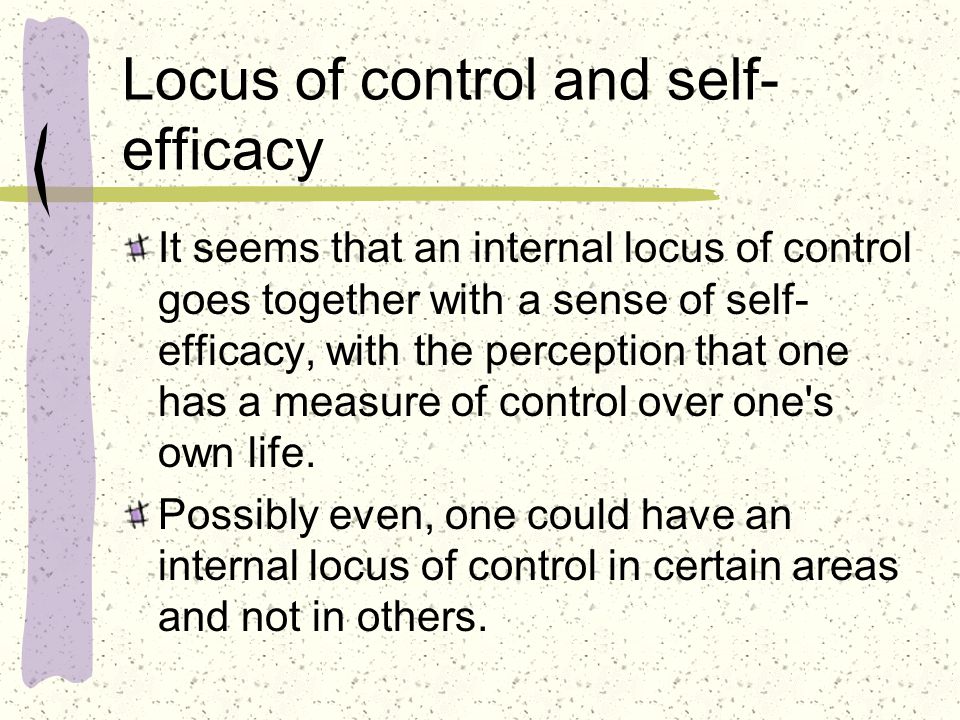 Self-efficacy, as described by psychologist Albert Bandura, refers to one’s belief that they are able (or not able) to accomplish tasks and achieve their goals.
Self-efficacy, as described by psychologist Albert Bandura, refers to one’s belief that they are able (or not able) to accomplish tasks and achieve their goals.
Though people with high self-efficacy also typically have a more internal locus of control, the two measures are not perfectly correlated. Someone, for example, may feel like they have the power to influence their own health while simultaneously feeling like they lack certain skills—such as cooking healthy meals—that would improve their health (high internal locus of control, but low self-efficacy).
Do self-efficacy and locus of control change over time?
Some research has suggested that one’s self-efficacy can be improved with practice, while locus of control is less easily influenced. There is some evidence, however, that one's locus of control may naturally change with age.
What factors affect self-efficacy?
People with high self-efficacy also tend to have high self-sufficiency, an essential aspect of well-being. They are high in self-esteem, feel secure and content with themselves, and aren’t overly concerned with other people’s opinions of them. People with strong self-efficacy are more resilient and less likely to be destabilized by negative life events. Their locus of control is more likely to be internal than external.
They are high in self-esteem, feel secure and content with themselves, and aren’t overly concerned with other people’s opinions of them. People with strong self-efficacy are more resilient and less likely to be destabilized by negative life events. Their locus of control is more likely to be internal than external.
What effect does perceived control have on health?
There’s a powerful link between perceived control and health. The more that someone believes their actions determine their future, the more likely they are to engage in healthy behaviors, like eating well and exercising regularly. If, on the other hand, they feel like they have no control, such as when dealing with a terminal illness, they may experience negative symptoms, like stress and depression.
How does perceived control affect the experience of stress?
People with high self-efficacy and an internal locus of control tend to cope better with stress, because they feel like their actions make a difference.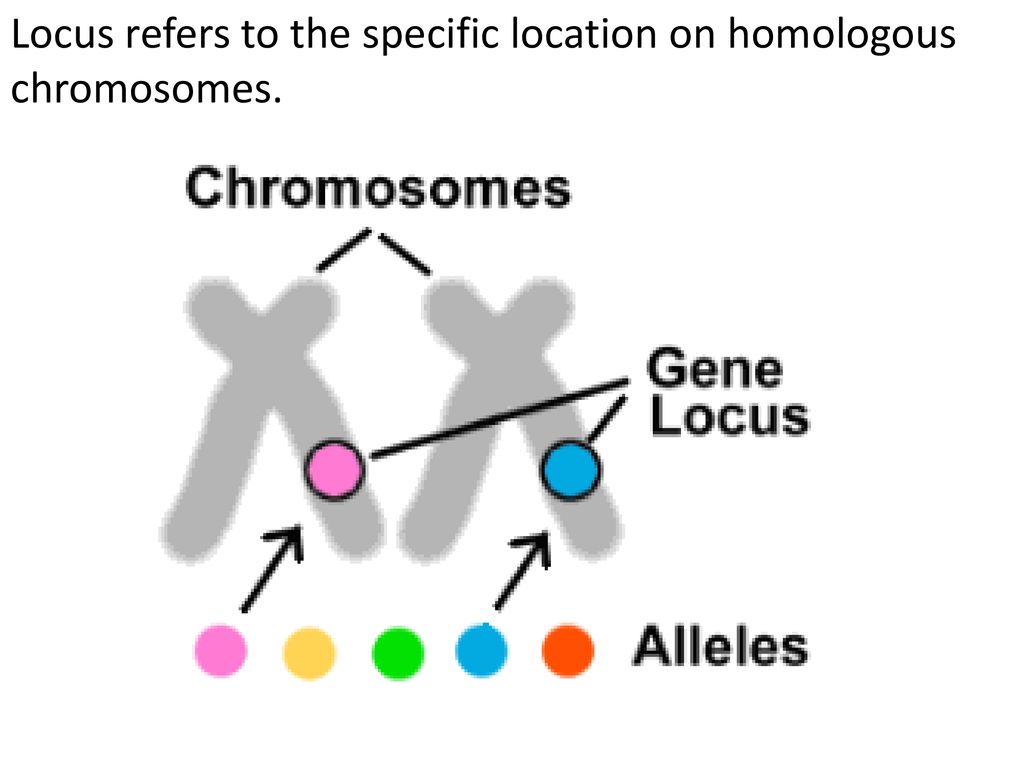 Meanwhile, those with an external locus of control or lower levels of self-efficacy are prone to feelings of helplessness, resulting in the excess release of the stress hormone cortisol. This, in turn, can lead to a sense of hopelessness and depression.
Meanwhile, those with an external locus of control or lower levels of self-efficacy are prone to feelings of helplessness, resulting in the excess release of the stress hormone cortisol. This, in turn, can lead to a sense of hopelessness and depression.
Essential Reads
Recent Posts
Locus of control. What is "Locus of Control"? The concept and definition of the term "Locus of control" - Glossary
Glossary. Psychological dictionary.
- A
- B
- B
- D
- D
- F
- W
- and
- K
- L
- M
- H
- O
- P
- P
- C
- T
- W
- F
- X
- C
- H
- W
- E
- I
Locus of control (lat. locus - location, French contrule - check) - a person's tendency to attribute success or failure in his life to external circumstances or his own abilities.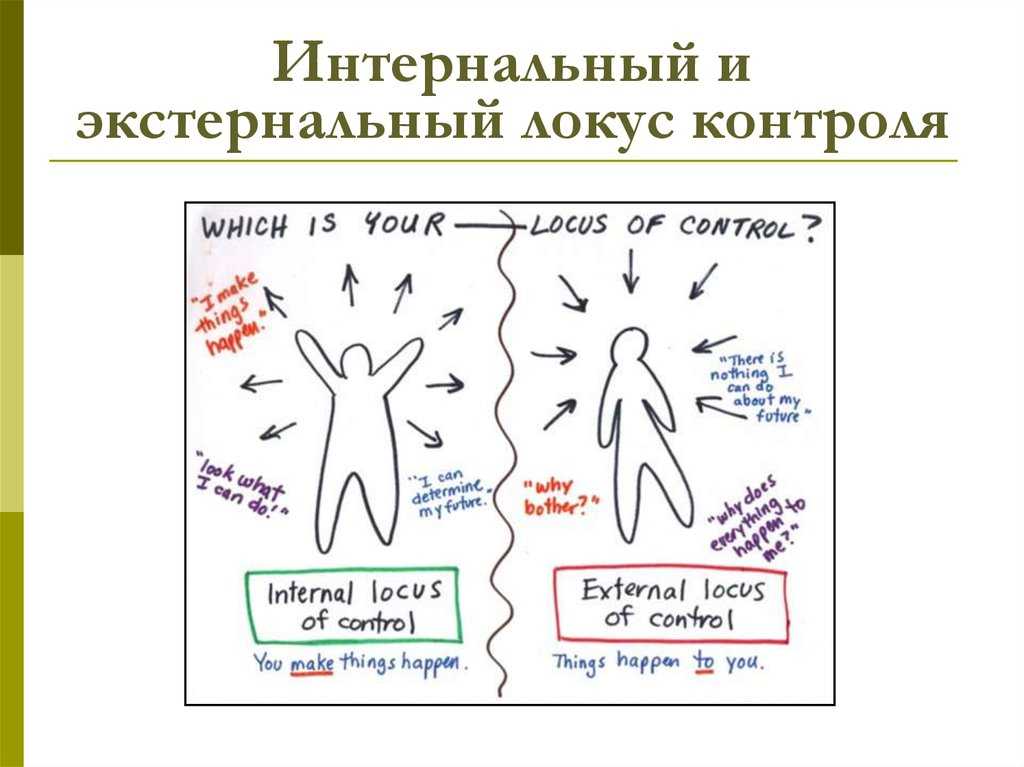
In the first case, they speak of an external (external) locus, in the second, an internal (internal) locus. The terminology was proposed in 1954 by the American psychologist Julian Rotter, and later the so-called "Rotter Questionnaire" was created, which allows you to determine the locus of control.
A simple example of locus of control is a student who received an unsatisfactory grade. An external (a person with an external locus) will describe this situation as the result of a combination of circumstances that he could not influence. For example, family friends came to visit his parents and constantly distracted him from reading a textbook. An internal (a person with an internal locus of control) will attribute this failure to his personal failure: for example, he is not interested enough in this subject to prepare well. It is possible that in fact this was influenced by external circumstances, but such a person in any case will consider only himself responsible.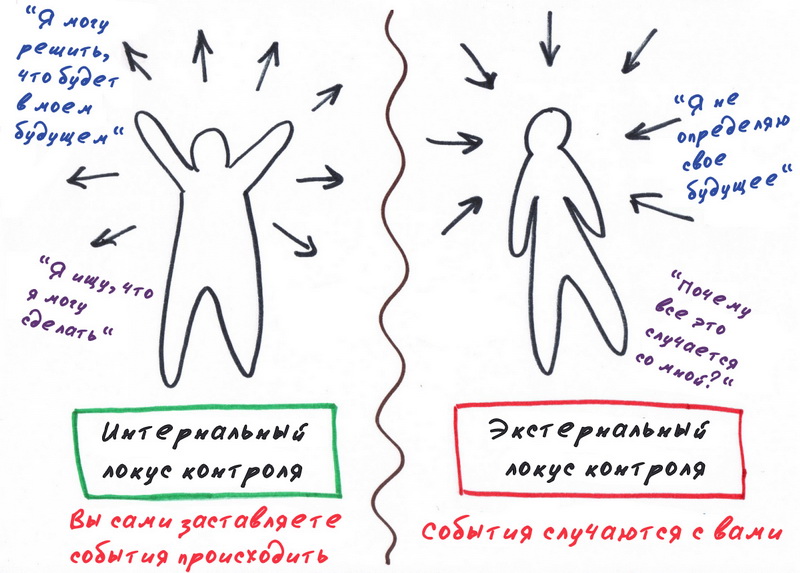
The difference between external and internal loci of control is not only in relation to responsibility, but in general they correspond to opposite life positions. Internals, as a rule, are self-confident, consistent in their actions, and often achieve their goals. Externals, on the contrary, are suspicious and anxious, often show aggression, rarely succeed.
< Logotherapy
Sleepwalking or somnambulism >
Popular terms
Locus of control
Anna Stetsenko: “We can always become creators of our own life”
What determines human development? Of course, genes. And also the environment in which we grow up, communication, the ability to set goals for ourselves and the ability to invest efforts in achieving them ... However, everything is not so simple with genes: the “program” of their work depends on many conditions and changes over time. Age psychologist Anna Stetsenko - about the revolution in ideas about a person that is happening before our eyes.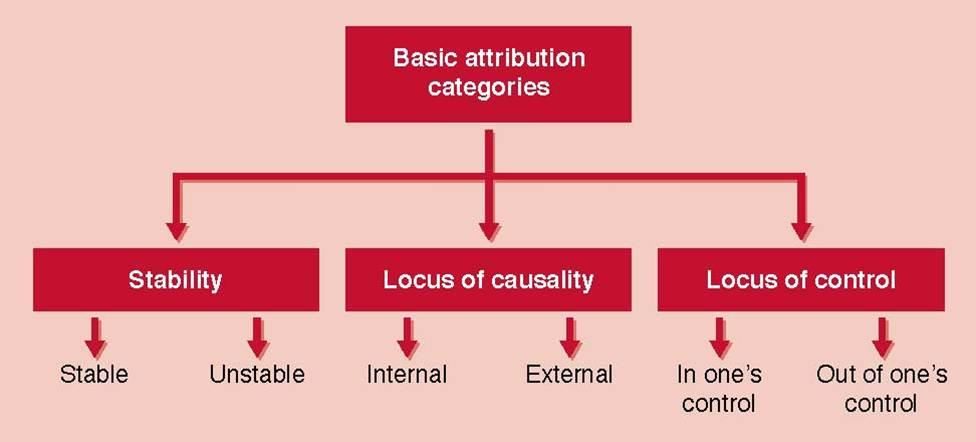
Media news2
new on site
- How to make decisions in a stressful situation: 3 tips
- "I forbade myself to fall in love - and now I can not answer the guy's feelings"
- “My husband constantly calls me a Banderist because I have Ukrainian roots”
- Is it true that "money does not bring happiness"? Scientists have found the answer to this question
- Conflicts in a couple: 3 signs that we want an impossible partner from a partner
- "We never kissed": how to break out of the friend zone network
- “Husband shouted to his daughter: ‘Turn away!’ and continued to cut me”: the story of a crippled make-up artist from Almaty — in the first person
- "I'm afraid I have schizophrenia"
Today they read
- “My man is leaving for his ex. She needs his money"
- The body hints loudly: 6 signs that you are ignoring your true desires
- "I myself went to the left, but I can't forget my wife's betrayal.
 " Part 2. Meeting with an opponent
" Part 2. Meeting with an opponent - 4 unforgivable mistakes at the beginning of a relationship: women's confessions are commented on by men
- Dysfunctional family: 10 unspoken rules of toxic parents
- "I'm afraid to be an old maid"
Psychologies invites
Psychologies in Odnoklassniki
SUBSCRIBE
new issue AUTUMN 2022 №71
More details
special projects
Locus of control in psychology — the method of cognitive orientation
Locus of control shows how a person relates to what happens to him. What do you think is the main reason for your failures? For some, these are their own mistakes, shortcomings and blunders. Others think that some factors are to blame for everything. As they say, they appeared in the wrong place at the wrong time. Locus of personality control determines which group you belong to.
Contents
- Determination of Rotter's locus of control
- Formation of locus of control
- Types of locus of control
- External (external)
- Internal (internal)
- types of people
- Personality maturity
- Study Methods
- Locom Control scale
- “Cognitive orientation” 9000
- Conclusion 9005
- personality traits of a person;
- education;
- historical moment;
- society.
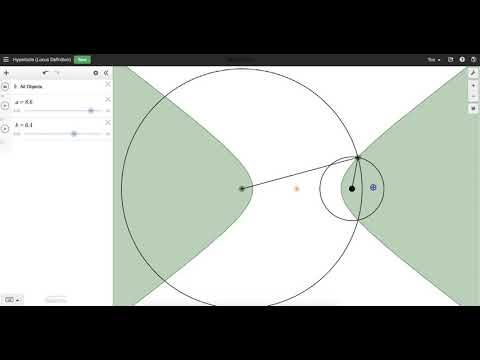
- A child growing up in an authoritarian family, in which mom and dad raise him inconsistently, develop external control in himself. Going with the flow is a habit for him.
- Children whose parents were consistent in their upbringing always take responsibility for their actions on themselves.

- take responsibility for any of their actions;
- do not depend on the opinions of others;
- value themselves, are self-sufficient;
- have inner harmony;
- have a stable psyche;
- work for the result.
- do not see their mistakes;
- do not know how to analyze mistakes and correct them;
- experience constant helplessness;
- depend on the opinions of strangers;
- are characterized by an unstable psyche;
- stop actions at the first failure.
- Building a career depends on luck, not on the efforts of the person himself.
- Divorces are a consequence of the fact that partners either do not want to, or do not know how to compromise.
- Everyone gets sick. It cannot be prevented or predicted.
- Cold, unfeeling people are always alone.
- I can realize all my desires if I am lucky.
- Sympathy cannot be won. Whether the person likes you or not.
- Marriage depends on the money and influence of parents as well as on the spouses themselves.
- I often think that I can't change anything in my own life.
- The company will develop if all decisions are made by the head, without relying on the opinion of subordinates.
- When I was in school, my progress depended not on me, but on external factors, including the mood of the teacher.
- I am confident that I can carry out my plan.
- That I can achieve what I want, implement all my plans.
- It is better to lead a healthy lifestyle than to go to the doctor and take pills.
- If the partners do not agree on the characters, you need to disperse. You won't change anything here.
- My efforts and investments in business are always appreciated.
- What will be the future of children depends on how they were brought up by their parents.
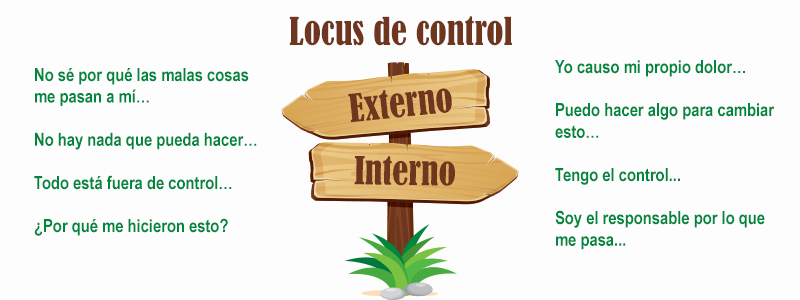
- There are no happy and unfortunate cases, as well as fate.
- In this life, little depends on me, so I do not make plans.
- While studying at school, my grades depended on my own preparation for the lesson.
- When quarrels in the family, I consider myself to be guilty, not my partner.
- Most of the people around me go with the flow, surrender to fate.
- I like it when employees, along with the manager, can make decisions.
- My illnesses are not the result of my lifestyle.
- Slips and failures are the result of an unfortunate set of circumstances.
- A bad leader is the fault of the employees.
- I think that I am unable to change the relationships in the family.
- One has only to want, and I can win the sympathy of absolutely any person.
- The future life of a child depends not so much on upbringing as on the influence of some external factors.
- Responsibility for everything that happens to me lies solely with me.
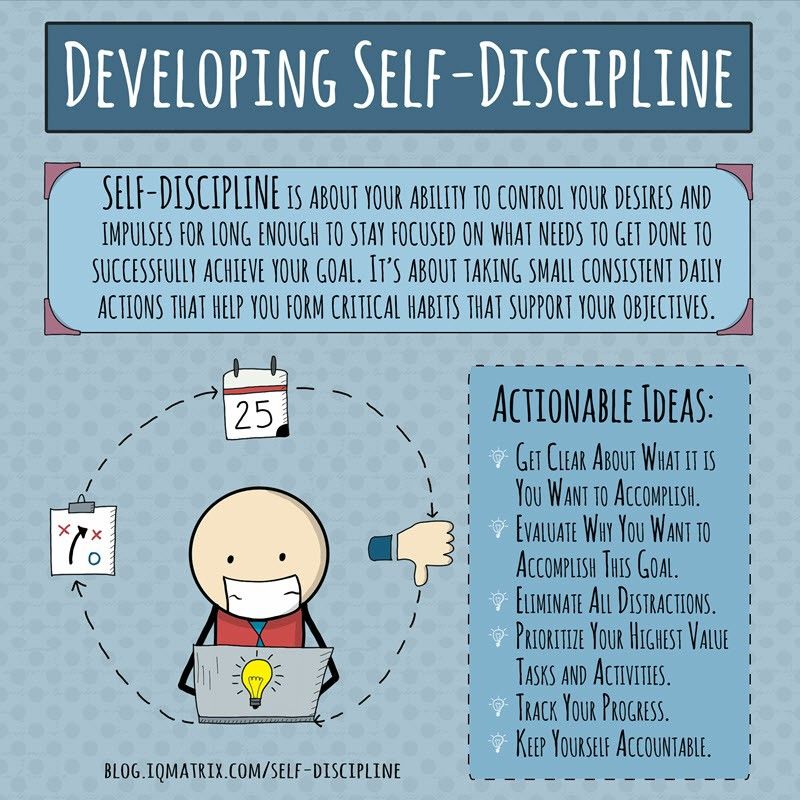
- Often I don't understand why the leader did this and not otherwise.
- People who cannot build a career are to blame for this.
- I can get what I need from others, including family members.
- Others are to blame for my failures.
- Careful child care is protection against many diseases.
- If I find it difficult, I wait for the problems to resolve themselves.
- Success is not luck or coincidence. This is a long, hard work on yourself.
- How happy my family will be depends only on myself.
- I sincerely don't understand why some people like me and others don't.
- I never ask anyone for help. I always rely on my strength.
- Often a person's contribution to a particular matter remains underestimated.
- Often, family problems cannot be solved, even if you really want to.
- Responsibility for undiscovered potential and undeveloped abilities lies with the person himself.
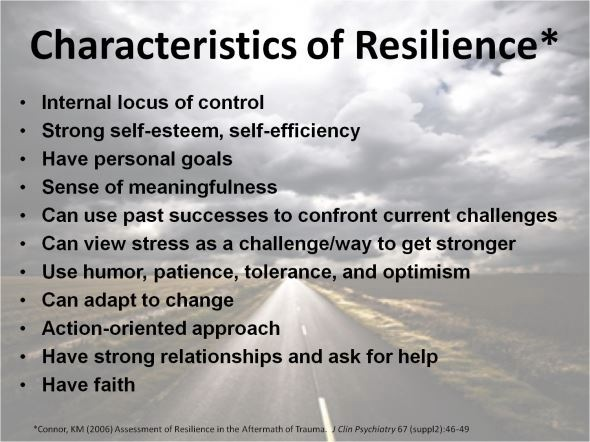
- Most of my victories are the merit of others.
- I am to blame for almost all my failures, my laziness or lack of knowledge.
- General internality. Score 1 point if you answered “Yes” to the following questions: 2, 4, 11, 12, 13, 15, 16, 17, 19, 20, 22, 25, 27, 29, 32, 34, 36, 37 , 39, 42, 44. "No" - 1, 3, 5, 6, 7, 8, 9, 10, 14, 18, 21, 23, 24, 26, 28, 31, 33, 38, 40, 41 , 43.
- Achievements. "Yes" - 12, 15, 27, 32, 36, 37. "No" - 1, 5, 6, 14, 26, 43.
- Failure area. "Yes" - 2, 4, 20, 31, 42, 44. "No" - 7, 24, 33, 38, 40, 41.
- Family life. "Yes" - 2, 16, 20, 32, 37. "No" - 7, 14, 26, 28, 41.
- Work. "Yes" - 19, 22, 25, 42. "No" - 1, 9, 10, 30.
- Health sphere. "Yes" - 13, 34. "No" - 3, 23.
- You have an external locus of control if you answered: 2a, 3b, 4b, 5b, 6a, 7a, 9a, 10b, 11b, 12b, 13b, 15b, 16a, 17a, 18a, 20a, 21a, 22b, 23a, 25a, 26b, 28b, 29a.
- You are an internal if your answers are: 2b, 3a, 4a, 5a, 6b, 7b, 9b, 10a, 11a, 12a, 13a, 15a, 16b, 17b, 18b, 20b, 21b, 22a, 23b, 25b, 26a, 28a, 29b.
Control of control.
 Rotter
Rotter What is locus of control? This is such a personality trait in which a person explains his successes and failures by the influence of external or internal factors. Translated from French, locus is a location, and contrôle is a check. In psychology, the concept of locus of control suggests that people are looking for the cause of everything that happens either in the environment (black bar, fate, machinations of ill-wishers), or in their inner world. So they justify all their actions.
The term was introduced into science by Julian Rotter. That is why the phenomenon is called Rotter's locus of control. It is also called cognitive orientation. It shows whether the individual manages his own life or relies on circumstances.
Locus of control formation
The development of Rotter's locus of control is influenced by several factors:
Depending on them, a person develops a passive or active position towards life. In the first case, he believes that nothing depends on him. And in the second, that he can still change something.
According to Julian Rotter, what will be the position depends largely on how often a person was punished or praised in childhood. He made this suggestion in 1954. So, if after committing any deeds the individual heard only reproaches and humiliation, the setting will appear in his mind: “I can’t do anything, I have no control over what is happening.” The same thing happens if the actions do not bring the expected result.
It turns out that upbringing plays one of the main roles in the formation of one or another type of locus of control. There are 2 examples:
Although the locus of control is formed from childhood, it can be changed. In the same way, fate can be changed.
Types of locus of control
As mentioned above, locus of control is divided into external and internal. Each of them has its own characteristics.
External (external)
In another way, the external locus of control is called external in another way. This is a state where a person blames external conditions for everything. He believes that his life is predetermined by someone or something. Therefore, his actions will not change either the present or the future. If he managed to successfully cope with the task - so there were circumstances. And if failures haunt, the stars are to blame for everything.
A person with an external locus of control does not want to be held responsible for their actions. He shifts it to anything. It can be people around, the universe, some abstract forces and much more. There are always culprits.
 Such personalities are called externals.
Such personalities are called externals. Internal (internal)
In contrast to the external locus of control, internal or internal encourages people to be sure that control over life belongs only to them. If something does not work out, the internals look for the cause in themselves, and not in the circumstances. They evaluate their internal state, abilities. If they praise, then only themselves. They make themselves the object of criticism.
This type of locus of control by J. Rotter in psychology is called the average. A person understands that there are factors from the influence of which he cannot get rid of. And he accepts them. But at the same time he leads a fairly active lifestyle, is not afraid to take responsibility, make decisions. As they say, if life gives you lemons, make lemonade out of them.
Attention! There are no 100% pure internals or externals. In humans, both types of locus of control are combined.
In the process of evolution, according to scientists, women have developed externality better.
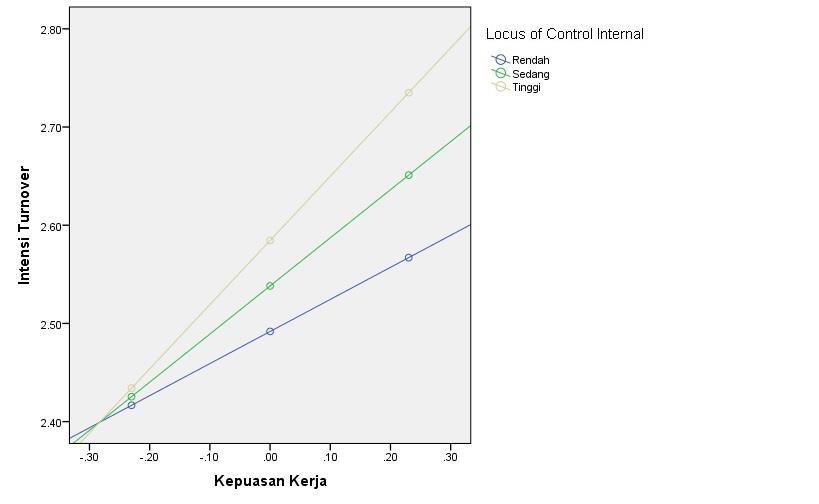 Males have an internal locus of control.
Males have an internal locus of control. Types of people
According to psychologists, a person's self-esteem is closely dependent on his locus of control. Anyone who constantly controls himself internally knows how to objectively assess his abilities and capabilities. He has the right awareness of himself as a person.
So, internals and externals. How do they differ from each other?Characteristics of internals:
People with an internal locus of control are usually happy, successful, and healthy. They treat others kindly. Look at the world through a positive lens.
Those with an external locus of control have the following traits:
A constant companion of externals is a feeling of complete hopelessness. They are not happy, they experience weakness and malaise, they do not get joy from their lives. Such people show aggression, suspicion, anxiety.
The main differences between externals and internals can be summarized in the table.
Internal locus of control External locus of control Look to the future Constantly return to the past They regard difficulties as an additional life experience, they see them as an opportunity to change, to become better They are afraid of failures, shun something new, unknown Hold their own opinion under any circumstances Unable to defend their own views Set goals, have planning skills They devote a lot of time to work, for the sake of it they are ready to sacrifice entertainment and recreation They live one day They know that the future will be bright, full of good events, bright colors See their future as uninteresting For internals, time flies very quickly, because they are passionate about their work Time drags on Appreciate every minute They do not know how to organize themselves, manage time properly Respect themselves as a person. 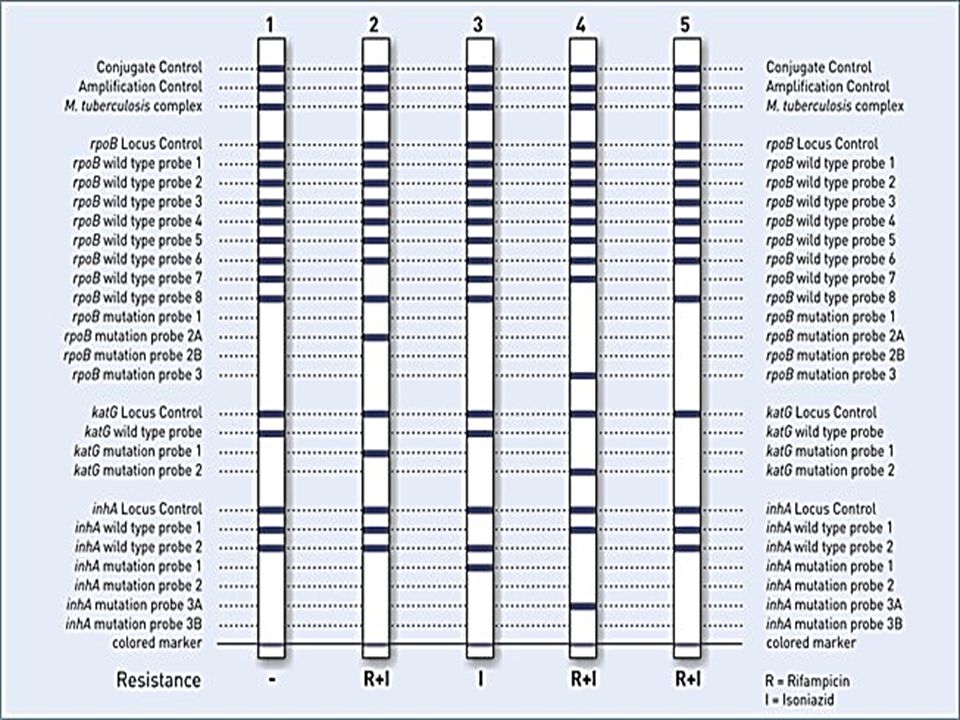 I expect only good things for myself, good luck, victories, love
I expect only good things for myself, good luck, victories, love Not confident in themselves, they think that they will not get anything good in the future It is worth noting that people with an external locus of control are more likely than others to develop mental and somatic pathologies. Their lives have no purpose or meaning.
Personal maturity
Internal locus of control in psychology is a property of a mature person. He doesn't care what other people think of him. He gives an objective, not a subjective assessment of his abilities, capabilities. But in this case it is difficult not to go to extremes.
To stick to the golden mean, set goals that you can definitely achieve. Do not try to change circumstances beyond your control. Otherwise, you are guaranteed to experience disappointment, depression, apathy. And one more tip - analyze the environment. If you see instability, do not make far-reaching plans.
Study Method
Back in 1966, Julian Rotter developed a method to assess a person's locus of control. Many psychologists have tried to modify the test. Today, the classic version and modification of O.P. Eliseev “Cognitive Orientation” is most often used.
Locus of Control scale
Helps to find out whether a person is an internal or external. It also shows how ready he is to see himself, evaluate his role, successes and failures in a particular area.
J. Rotter's locus of control test questionnaire contains 44 questions. One must either agree with the statement or refute it.
The interpretation of the results depends on how many of your answers matched the answers in the key. In total, 6 spheres of life are considered:
First of all, it is necessary to evaluate the results of the general internality.
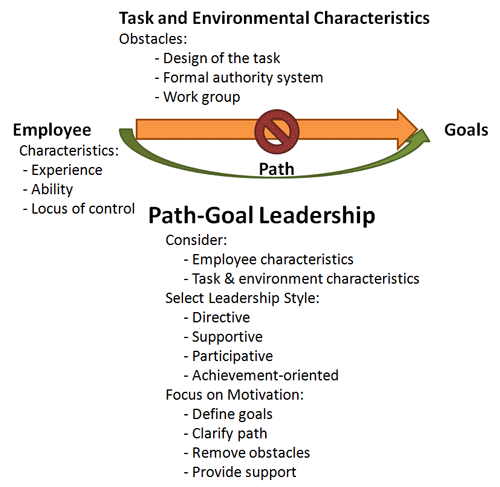 If you have 33-34 points, then the internal personality type prevails in you. If from 0 to 11, the external locus of control predominates. If you got 12-32 points, you can talk about the mixed type.
If you have 33-34 points, then the internal personality type prevails in you. If from 0 to 11, the external locus of control predominates. If you got 12-32 points, you can talk about the mixed type. As for other areas, high scores indicate that a person is ready to take responsibility for his life, to act actively. Low scores, on the contrary, symbolize people who are used to taking a passive position. They always shift the responsibility to the people around them. Moreover, they are “blamed” for both victories and defeats.
"Cognitive Orientation"
Like the previous test, it helps to determine whether you have an external or internal locus of control. Here 29points. In each of them, you need to choose one of the two given statements. They are labeled "a" and "b".
No. A B 1 Children have trouble with too strict parenting
Children get into trouble if parents are too soft 2 All difficulties are the consequences of failures A person is to blame for his own problems
3 Immoral acts are committed because people turn a blind eye to them Even if you try to eradicate immorality, it will still manifest itself
4 As a result, a person will receive a reward for all his actions In most cases, no one ever recognizes the merits and achievements of this or that person 5 Progress does not depend on the teacher's bias in any way Pupils do not understand that their assessment largely depends on the circumstances 6 The success of the head of the company is determined by external circumstances. 
Whether a person is a good or a bad leader depends on himself 7 You won't be able to please everyone around you 8 Character and behavior cannot be changed. They are 100% dependent on heredity Character and behavior are determined by life experience 9 Everything depends on what is destined by fate Instead of relying on fate, one must actively act 10 A good employee is not afraid of a meticulous check Even the most experienced, trained worker will not stand the test with prejudice 11 Success is the result of daily hard work Success is a coincidence 12 Each of us can influence the fate of the state. Citizens will not be able to change the decision of the authorities in any way 13 I am confident in myself, my goals, plans
I don't make plans because I don't know how things will turn out.  Little depends on me
Little depends on me 14 There are many bad people in the world Something good can be found in every person 15 The fulfillment of my desires directly depends on how much effort I put in To determine my desires and goals, I toss a coin or rely on the mercy of fate 16 You can't just become a leader. Luck is needed here Leaders are those people who have the ability to manage a large number of subordinates 17 A person cannot influence the course of world events People should actively participate in public life, as this is an opportunity to change the world 18 Many do not understand that their lives depend on a combination of circumstances No luck, a combination of circumstances too 19 It is important to admit mistakes It is better to hide your mistakes 20 It is difficult to understand whether you are really attractive to a person or not Our social circle depends on us. 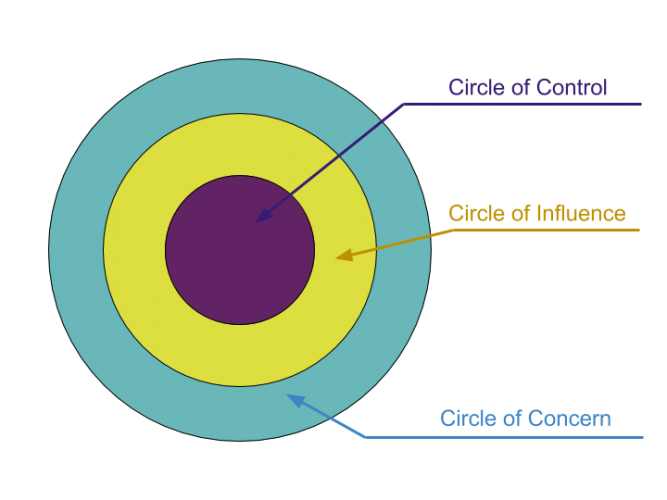 You need to learn to find a common language with others
You need to learn to find a common language with others 21 The black stripe is usually replaced by a white one A person must himself bear responsibility for failures. Until he corrects the mistakes, failures will be repeated 22 People can make society less callous, soulless Formalism and soullessness cannot be eliminated 23 Often it is not clear to me why the manager gave a bonus to one of the employees The bonus is a reward for good work, for the fact that a person has made maximum efforts 24 A good leader gives freedom of action to subordinates A good leader explains to each employee what duties are assigned to him 25 I cannot influence my life, I am powerless Accidents and fate do not exist. It all depends on me 26 People are lonely because they themselves do not show friendliness to others Do not try to make someone like you. 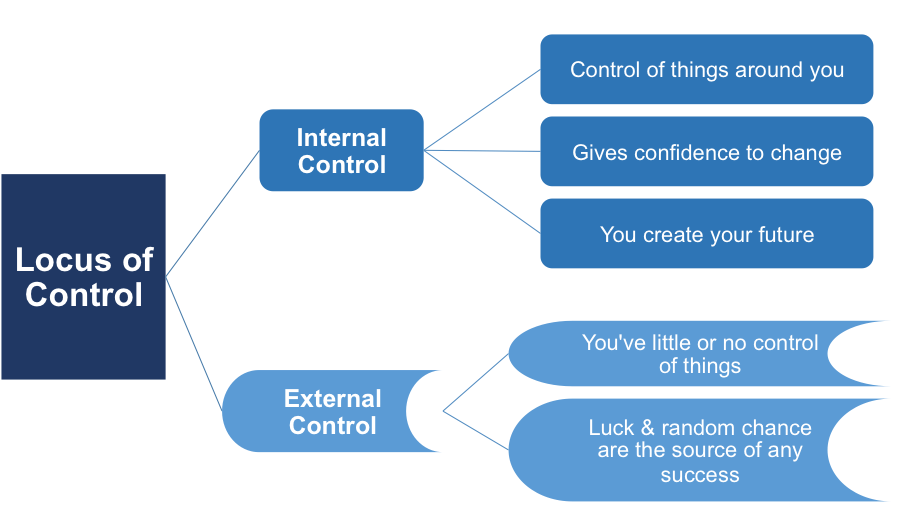 Either the person liked you or not
Either the person liked you or not 27 Character is determined by willpower Character largely depends on the team, society 28 I create my own life I feel like I have no control over what happens to me 29 Very often I do not understand the actions of my manager Now you need to compare your answers with those in the table. Score one point for each match. Key to interpreting results:
The maximum number of points is 23. 6 questions are considered background.
